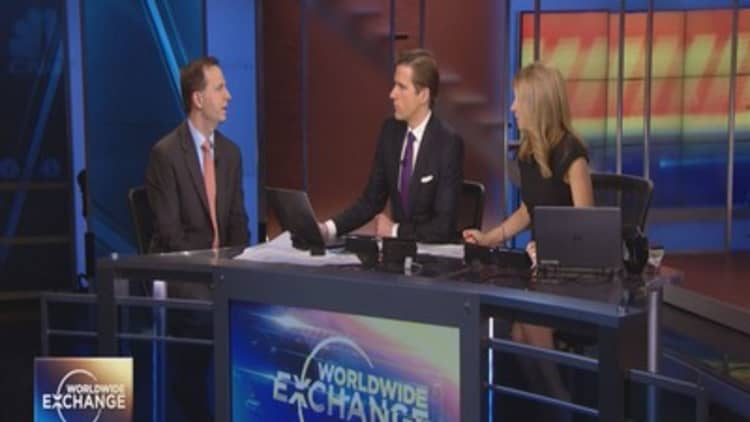
Slowing Chinese growth isn't necessarily going to trigger a worldwide depression, Drew Matus, UBS chief U.S. economist said Thursday as stocks tumbled after a second circuit-breaker trading suspension in Chinese stocks this week.
"There's evidence that weakness overseas hurt us before, but there's no evidence of new weakness from overseas and there's no evidence of an actual impact on the U.S. economy, so this all seems to be a sentiment-driven financial markets story, rather than a real economy story," Matus told CNBC's "Worldwide Exchange."
Matus pointed to recent economic data, including Thursday's weekly jobless claims report, which fell from a five-month high, according to the Labor Department. "The idea that somehow the U.S. is in trouble, or that most developed markets are in trouble, when there's really no signs of weakness in the United States. Look at claims today, no one's being laid off. If there was something going on, someone would be getting laid off," Matus said.
As for China, Matus says its troubles are to be expected, "China is trying to move into a domestic-driven economy, there's always going to be pains with that."
Matus believes a good jobs report, which he's expecting, might calm people down, but an aggressive Federal Reserve could aggravate the markets. "The Fed told us gradual is four hikes and we all better get used to that idea."
Still, Matus' view is that the economy will benefit from hiking interest rates in the long term. "It's always great to be addicted to things, but eventually you have to go cold turkey… There's transition pain, and the longer you were an addict, the more painful it might be, but in the end you're going to be better off having made the transition."




